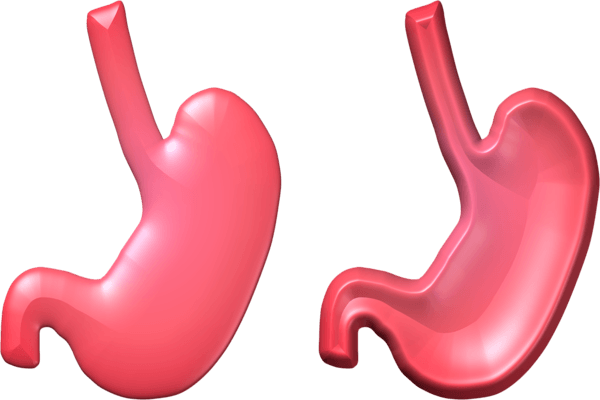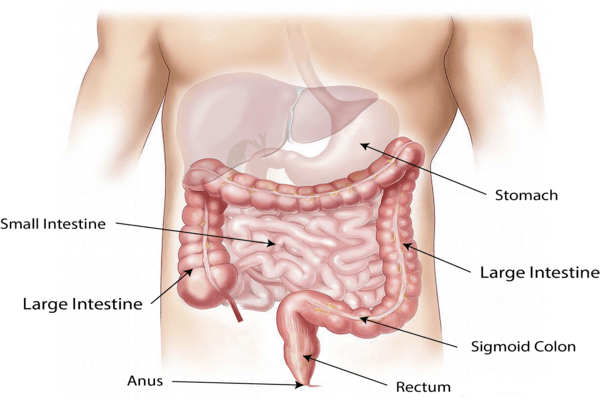
Stomach pain is not fun. You feel achy, nauseated, and grouchy. It’s hard to function when your stomach hurts. Most of the time stomach pain comes and goes, or you expect it after a big meal. Chronic stomach pain may be signs of some scary medical conditions.
Check out these seven common causes of stomach pain. You might just be taking your sore stomach to the doctor is you have all the symptoms of number six and seven.
And just remember that red or black blood coming out either end is a sign of both two and four. You might just merit a visit to the emergency room.
Gastroenteritis and Food Poisoning
Stomach flu and food poisoning have many of the same symptoms, including stomach pain. What you can stomach flu is probably food poisoning. The main difference is the onset. Stomach flu takes up to two days to incubate; food poisoning takes up to six hours to give you the Salmonella Two-Step.
Both last a few days and it make take a few days more to recover from all the vomiting and diarrhea. Neither are particularly deadly, unless you have an underlying condition or get dehydrated.
Gastritis

Gastritis is damage to the stomach lining through inflammation, irritation, or erosion. Generally, you’ll have a lot of stomach pain and indigestion. You can have an acute onset or a chronic case. There are many causes including excessive alcohol use, chronic vomiting, bacterial infection, and overuse of medications.
Untreated gastritis can lead to severe blood loss, ulcers, and increase you risk of stomach cancer. If your stomach hurts with vomiting, especially of blood or coffee ground-like material, and black tar stools, talk to your doctor.
Acid Reflux
Heartburn, acid reflux, and gastroesophageal reflux disease (GERD) are related. All three can make your stomach hurt. Heartburn is stomach acid in your esophagus.
Acid reflux causes heartburn and other painful symptoms. GERD is chronic acid reflux. Common triggers include eating too much, wearing restrictive clothing, spicy foods, smoking, and lying down after eating a big meal.
Untreated acid reflux can lead to ulcers, a damaged esophagus, and eventually esophageal cancer.
Ulcers
Ulcers form when sores don’t heal. You can get ulcers from your stomach to esophagus. Ulcers cause stomach pain, a feeling of indigestion, and nausea. The two most common causes are H. pylori bacterial infection and overuse of non-steroidal anti-inflammatories.
Stomach pain can occur on an empty or full stomach, difficulty swallowing, and feeling unwell after eating. If ulcers go untreated, you may vomit blood or pass red or black stools. If you see either of these, go to the doctor immediately.
Constipation

Constipation is the inability to have a bowel movement. As your colon fills with waste material, you’ll get stomach pains. You may bloat and if the condition goes on long enough, your breath may start to smell. You should have three or more bowel movements a week and they should be fairly easy to pass.
There are some serious conditions that cause constipation so have it checked out if it doesn’t respond to drinking water and eating fiber.
Irritable Bowel Syndrome (IBS)
Inflammatory Bowel Syndrome is a functional disorder of the digestive system. With IBS, you may have stomach cramps, bloating, gas, mucus-y stools and constipation or diarrhea.
The cause is unknown, but IBS sufferers have a more sensitive colon and the brain perceives pain more acutely. There is also a link with either too much or too little serotonin.
IBS doesn’t cause other health issues, but you will feel miserable and have a lot of stomach pain.
Crohn’s Disease
Crohn’s disease is an inflammatory bowel disease. Crohn’s involves abdominal pain, severe diarrhea, fatigue, weight loss and malnutrition. It can be very painful and may lead to serious complications.
Current research suggests that Crohn’s is caused by your immune system responding to an infection and then over-reacting and attacking the digestive tract cells.
Complications include ulcers, fistulas, colon cancer, and diseases related to malnutrition. If you experience the symptoms, talk to your doctor. Crohn’s is not presently curable but may be manageable.
Conclusion

Stomach pain is the sign of emotional upset, anxiety, constipation, and a whole host of diseases and conditions that you really don’t want to suffer. Chronic stomach pains should be investigated. There are many reasons and all of them need to be identified and managed.
If you suffer chronic stomach pain, you will discover that a sore, achy stomach will focus your entire energy on it. Getting it cleared up will make you feel much better and it might save you life!
